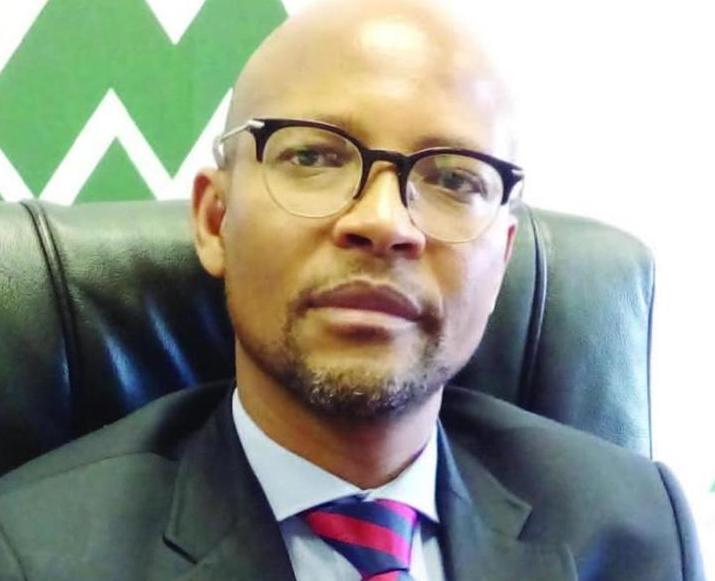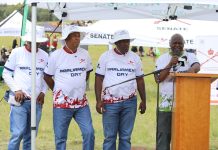Africa-Press – Lesotho. Maluti Mountain Brewery (MMB) expects to see a significant drop in taxes to the Lesotho Revenue Authority and dividends to the government if Treasury implements the levy on alcohol to 15% as announced recently.
This is because MMB expects a 19% drop in sales volumes as a result of an increased levy, Managing Director Sesupo Wagamang told Public Eye in an interview this week.
He said for the past four years, MMB has paid the government up to M1.1 billion in taxes, M250 million in dividends and spent M150 million on local procurement all of which he notes cannot be guaranteed in future if the levy increment goes through.
The Lesotho Government has a 61% stake in MMB, while MMB and ABInBev own the remaining 39 % stake. “We are quite a major player in the economy of Lesotho and any policy decisions made on us will impact the economy either positively or negatively.
“Over the past three years, from 2016 to 2019, the taxes we paid to Government have grown by at least by 25%, which translates to more than a M1 billion.
“In 2019, our contributions in terms of revenue have also grown by 6%,” he said.
He said the reason they have been realizing such growth is because as a business they understand that alcohol is sensitive to pricing so every year they strive to price their products below the inflation rate to stimulate demand.
“When demand is stimulated sales grow and when sales grow we get to pay more taxes to the Government through exercise while also creating more employment.
“When we create more employment opportunities people get to also pay PAYE tax,” he said. He noted MMB is one of the most consistent corporates from the start when it comes to paying dividends to the government.
Wagamang further said they have streams of revenue to help the country raise revenue and the numbers speak for themselves. He, however, noted that they have a challenge with the 15% levy which was introduced last year by the minister of finance and whose implementation will be effected this financial year.
“This poses a big risk for MMB. The 7% growth in sales volumes that we achieved in three years was due to stimulating demand by pricing below inflation.
“The biggest challenge now is that if the levy increases to 15% as proposed by the Minister of Finance, we will experience a drop in sales, a drop in revenue paid to the Government and we will be forced to raise prices, resize the business and withdraw from projects were are doing to empower local businesses,” he said.
Wagamang said he presented this information to the Government of Lesotho and other stakeholders including the World Bank, IMF, the Lesotho Chamber of Commerce and Economic Cluster Portfolio last year during the budget debates to show them that alcohol is price sensitive and even shared a number of case studies but the Government still pushes for the levy increment.
He said since the government is the majority shareholder, the only thing they can do as managers of the business on behalf of the Government is to advise on what they think is realistic or is the right thing to do and the decision will always be made by the Government.
Wagamang presented a number of case studies where increment of levy on alcohol backfired on the country. He said in Botswana the levy was increased by 30% and their sales volumes declined by 30 %.
He said Eswatini also increase the Levi and their sales declined with the same percent. He further noted that South Africa has gone to a rate of 4.4 % Levi this year after experiencing a huge drop in sales in 2018 when the Levi was at 10 %.
Wagamang said what concerns him most is that the Minister speech is driven by taxes, not by anything else other than increasing taxes which puts pressure on the consumer and essentially reduces disposable income that is available to people to actually generate or fuel the economy.
He said to avoid this, South Africa has gone the other way round by reducing taxes including cooperate taxis and exercise tax to ensure that it grows its economy again while Lesotho is doing the opposite.
“Lesotho will not benefit from this increment because increasing the Levy will result in a drop in sales and the taxes we are already paying to the Government which were over M1 billion over the past three years, instead it will be worse off because the little money consumers have will be under pressure as inflation is also going up.
“Lesotho does not have a revenue problem; it has an expenditure problem.
“If the Levy increase is implemented, we anticipate that our volumes will decline by at least 19%.
“Reality is if we decline by 19%, everything goes backwards.
The taxes we pay will also drop and of course unfortunately when the costs go up, sales will drop and we will have to relook the operating business model and currently we cannot guarantee jobs,” he said. He said the other concerning issue is smuggling.
“As a strategy from pricing point of view, one of the things we have done is to always price lower than South Africa because we understand the dynamics in the economy and minutes required to work for one to get a beer.
“The lowest income earner in South Africa has to work for at least 274 minutes to afford a 500ml bottle of beer while in Lesotho a consumer has to work for 314 minutes for the same product.
“This explains that Lesotho is already under pressure in terms of affordability and to cushion that we find other ways to make the operation more efficient in order to fund the price discount that we give to consumers but very unfortunately with the levy increase we cannot we will shift possibly the rest of the extra costs to the consumer.
“This will make beer in Lesotho more expensive than in South Africa which essentially means people will smuggle beer in to the country.
“At the current moment even when our prices are low than South Africa, Lesotho economy is losing at least M29 million revenue per annum through smuggling. You can now imagine what will happen if we price above South Africa,” Wagamang said.
He told this paper that because of the uncertainty in Levy increase, they had to put on hold a project on expanding capacity at the brew house because they cannot put an investment of M50 million in to the plant when they are not sure that they will need the capacity if their volumes drop by 20%.
He said despite the Minister’s reason to increase alcohol Levy to control alcohol usage, people will still drink alcohol but the problem is that they will opt for other harmful stuff which will put the health sector under pressure.
“I understand the Minister comes from a good place in terms of raising revenue for the country and reduce harmful drinking but I believe the unintended consequences are huge,” he said.
Minister of Finane Moeketsi Majoro in his 2020/21 budget speech proposed 15 percent and 30 percent levies on alcohol and tobacco products respectively.
British American Tobacco Group, a leading tobacco and nicotine products also showed concern on the proposed tobacco levy. They said Lesotho could lose at least M93 million per annum in revenues by 2021 if Government resolves to impose a 30 percent levy on tobacco products.
They further noted that Lesotho Government loses M17 million in illicit cigarette sales adding that the sale and distribution of these illicit are mainly smuggled from South Africa through the boarders and sustain at least 1 500 jobs.
They said the proposed tobacco levy will be passed on to consumers by legal industry thereby resulting in a further gap between the cigarette prices charged by the legal players compared to the price of illicit cigarettes on the market.
They noted that there will be a remarkable upsurge in illicit tobacco products on the market, leading to further erosion of government revenues from the industry.
For More News And Analysis About Lesotho Follow Africa-Press






